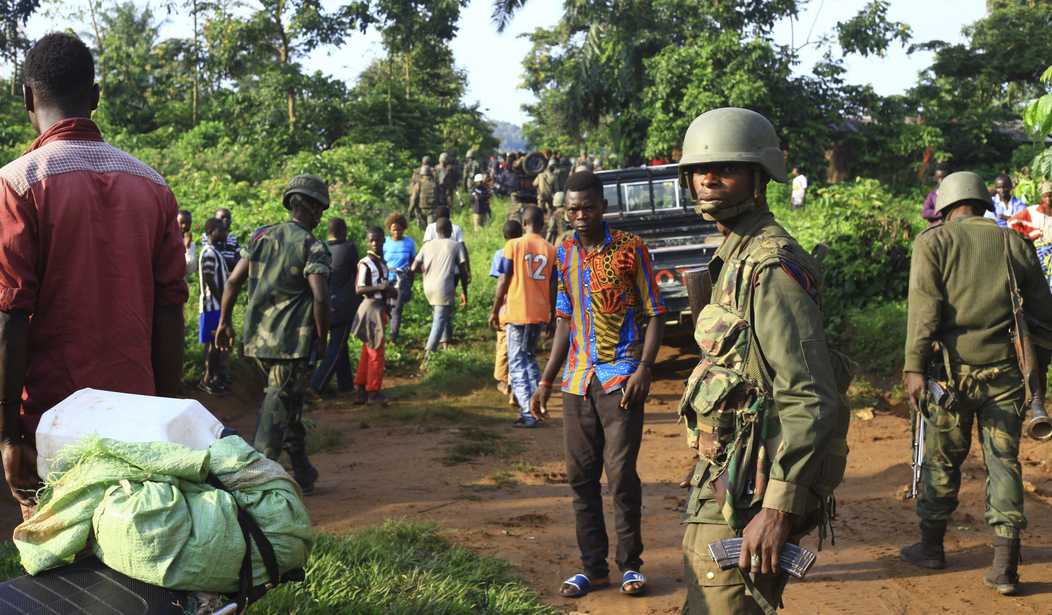If you think the Democratic Republic of Congo's Dec. 23 national elections will never touch your life, please contemplate the following factors indicative of the tight-knit and complex troubles we confront on 21st-century Earth.
Consider the great Congo War's bloodbath. This column lacks a camera that could provide photographic substantiation, but I'll do my best to describe the body count, quantitatively and comparatively.
Some astute types distinguish two Congo wars on the cusp of the millennium. Contrarians -- I among them -- argue the mass murder never stopped, so the great war (roughly 1996 to 2003) rates as one catastrophe.
Estimates vary, but 3 million to 5 million human beings perished. For the most part, the butchery unfolded beyond mainstream media. Gutsy medical aid activists, some Reuters and Agence France-Presse stringers with cellphones and a handful of combat reporters witnessed enough carnage to document the anarchic massacre.
If the 3 million figure is accurate, that means Congo's horror exceeded Cambodia's Killing Fields genocide (circa 1975-1979). What gave the Killing Fields an awareness boost in global media? A Cambodian survivor worked for a major western newspaper. I make this point not to disparage the man's immense suffering or his courage, but to illustrate how information on these distant events is contingent. Global media rely on articulate and connected sources.
With exceptions, Congo's victims lacked both.
Activists with long-term experience in Congo suspect 5 million dead is more accurate. But in my opinion, debating 3 million vs. 5 million human corpses constitutes amoral statistical myopia in the face of evident genocidal horror.
Recommended
Ultimately, the U.N. inserted a peacekeeping force that eventually deployed over 20,000 soldiers. Some 17,000 or so are still deployed.
Unfortunately, U.N. observers and buffer forces didn't end Congo's killing. So the U.N. Security Council authorized offensive operations by peacekeepers. In 2013, the U.N.'s Force Intervention Brigade attacked rebel belligerents and in doing so took sides. The U.N. wasn't neutral. Instead, U.N. military power supported the Congolese government in Kinshasa.
Doesn't touch your life? Hang on.
Attention Chinese car buyers and North Americans who exalt electric vehicles and condemn petrol-powered transport: Congo's election matters because Congo's extraordinary cobalt deposits and annual cobalt production have strategic international value and therefore long-term strategic implications that will eventually affect your lifestyles or threaten your lives.
Why? Manufacturing the electric engine powering China's small "urban" electric car takes 22 pounds of cobalt. That's why China imports at least 80 percent of Congo's annual output.
Other pertinent facts: China is an expansionary power pursuing territorial acquisition in East Asia and the South China Sea, and arguably in the Himalayas. China is exerting diplomatic and economic power in southwest Asia and Africa and is probing Europe, too.
But China's people want modern goodies and cool stuff, like iPhones and electric cars. They will ignore Communist Party oppression if Beijing's dictators provide high-tech rewards.
So great power China has vital international and domestic political interests in Congo.
Hence the knotty Congolese election. Congolese President Joseph Kabila is a corrupt thug whose family and cronies steal Congo's mineral wealth. Kabila's decision to delay the 2016 national elections and remain in office violated fundamental constitutional law ("constitution of the Third Republic," 2006). The constitution he violated was based on the agreement that ended the Great Congo War.
Kabila's handpicked successor is now favored to win the election. A puppet successor won't satisfy the Congolese angry at Kabila's corruption, violence and disdain for the law. Moreover, Kabila has indicated he will try to return to the presidency in the next decade. The stage is set for another civil war -- this time with great power implications. How will U.N. forces react if Kabila's crony wins the election?
We live in interesting times.
























Join the conversation as a VIP Member